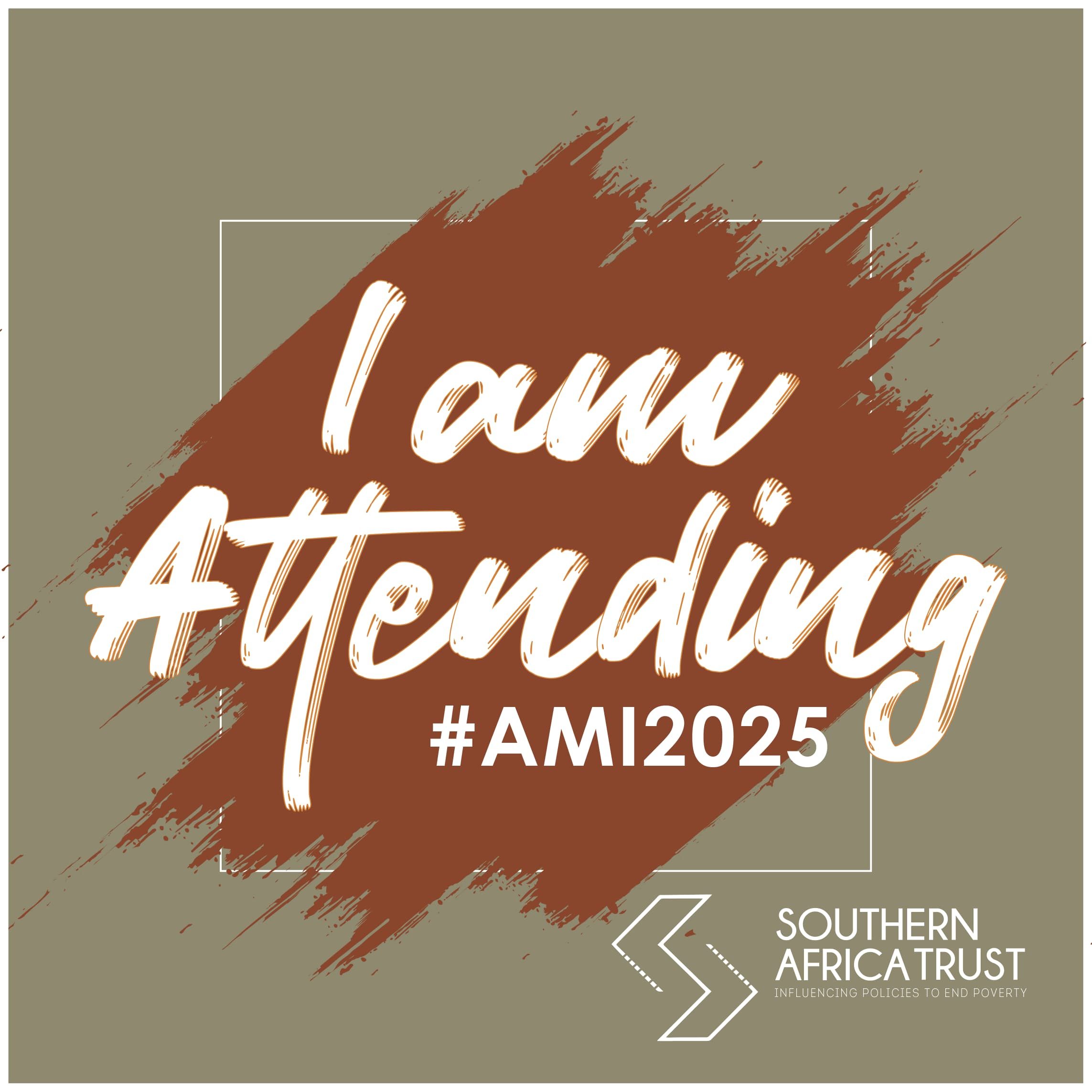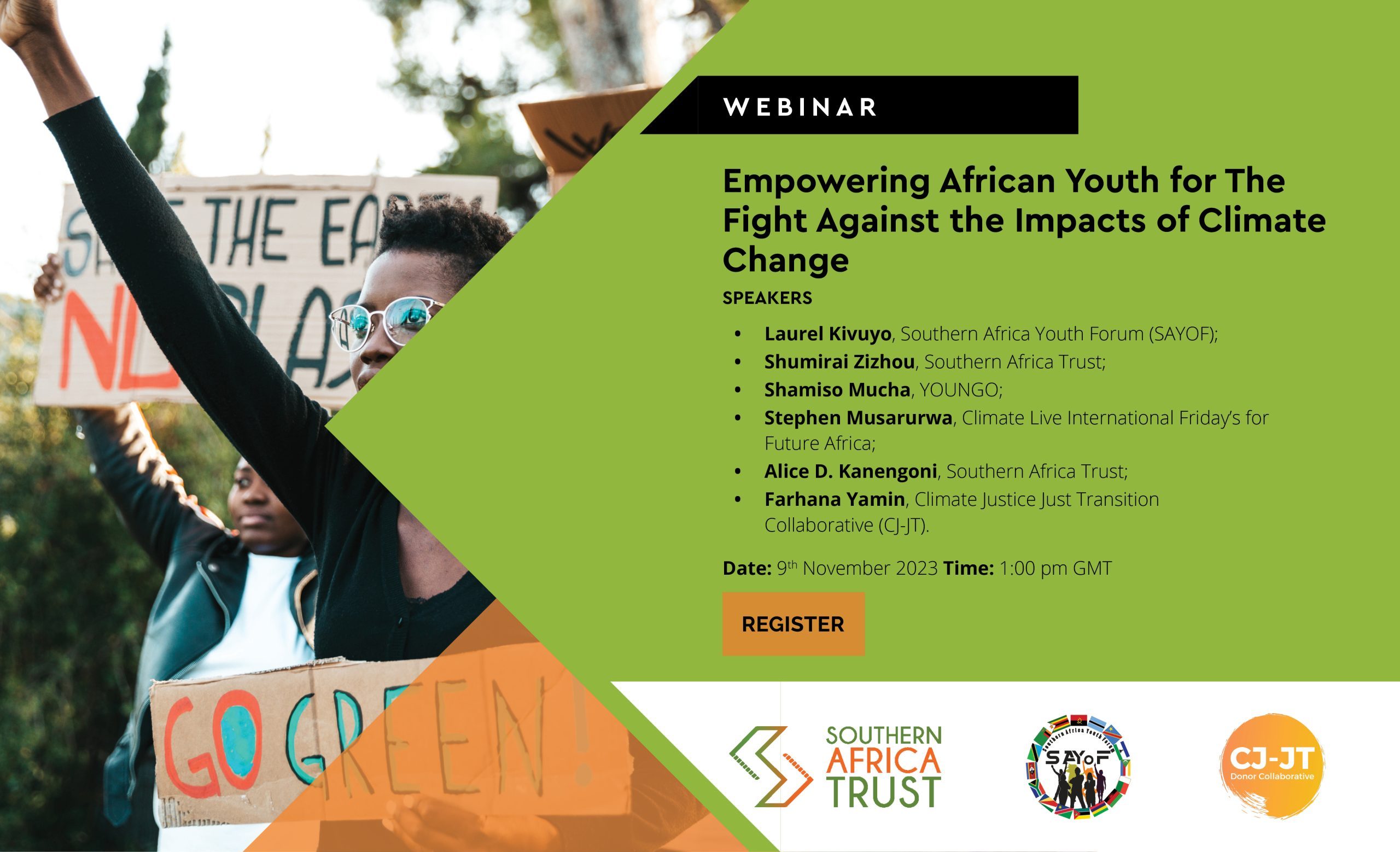“Who’s Earth Is It Anyway?”
Southern Africa Trust Sparks Dialogue on Afro-Ecofeminist Resource Governance at AMI2025
During the recently concluded Southern Africa Trust (SAT) idea lab at the Alternative Mining Indaba (AMI2025), panellists and participants debated Afro-ecofeminist approaches to environmental and natural resource governance. The AMI2025, which took place from 3-6 February 2025, brought together hundreds of economic justice, environmental and natural resource experts, activists and organisations, to deliberate on the critical question of energy transition in Africa. The AMI2025 explored the linkages between energy transition, democratic governance and intrinsic vulnerabilities, like poverty and marginalisation.
The idea lab organised by The Trust, was titled “Reclaiming Earth, Restoring Balance and Care in the Extractives Sector: Afro-ecofeminist Approaches to Mining Sector Transformation”, and sought to highlight intersectional approaches to advancing a just and sustainable extractives sector in Southern Africa. The idea lab bridged grassroots experiences with policy and legislative processes, while centering Afro-ecofeminist approaches that demonstrated the interconnectedness of struggles rooted in colonial histories, including environmental degradation, gender inequality and systemic exploitation.
The participants analysed the current context in which mining takes place, and agreed that balance, care and humanity are sorely lacking in the industry, and that the pursuit of profit often trumps the needs of people, leaving them negatively impacted and increasingly vulnerable.
As put by Tsitsi Mashandudze, an Afro-ecofeminist from the Shine Campaign, “communities in extractive mining are trapped in a cycle of depravation and environmental harm”.
Justice and equality are in short supply and natural resource governance processes fail to centre the communities most affected by extractive activities, leaving legacies of poor social lives, injuries and debilitating disease. Vama Jele of the Southern African Miners Association explained that parliamentary processes for legislative change are very slow, and even where there are statutory obligations, mines are not adhering to them. Isheanesu Chirisa of Women and Law in Southern Africa (WLSA), referring to their documentary that was shown during the Idea Lab, c illustrated how women are disproportionately impacted by mining activities, leading to increased vulnerability, poverty and sexual violence. In proffering solutions, Jaqueline Rukanda of Natural Justice underscored the need for litigation, legal empowerment and simplification of existing legislation. Farai Maguwu of Centre for Natural Resource Governance (CNRG) called for the need to connect historical conversations of land ownership, and establish a collective voice through community protocols, informed by participatory research. Anushka Bogdanov of Risk Insights demonstrated how to utilise existing data to push for accountability.
In answering the old age question of who’s earth it is, Uzna Malunga from ALTERNACTIVA reminded participants that it is us who actually belong to the earth, and that it is those who try to own mother earth and exploit her for profit, that caused harm and damage, not just to her, but also to her people. She stated that there are indigenous practices that enabled people to live in harmony with nature and with the land. However, many of these have been disrupted by mining activities which often leave communities separated from indigenous food and medicines, and the land damaged. Nsama Musonda of Care for Nature Zambia, illustrated how indigenous knowledge buttressed by symbiotic relationships with the earth demonstrate care and sustainability, and how that has been overrun by modern practices premised on profit. The discussions concluded that community stewardship is essential to sustainable environmental and natural resource governance.
Beyond the AMI, The Trust intends to contribute to broader movement-building efforts around climate justice and natural resource governance in Southern Africa.
“When it comes down to it, it is women, youth, and marginalised people who bear the brunt of the intensifying climate crisis and weak natural resource governance,” says Janet Mudzviti-Zhou, the Economic Justice lead at The Trust.
With increasing demand for strategic minerals and other extractible resources, there are heightened risks of excessive and unmanaged natural resource extraction in a context of weak regulatory institutions and systems. This reality necessitates urgent attention to transformative approaches that centre community voices and experiences.
The Southern Africa Trust has been at the forefront of natural resource governance initiatives in the region. Through various programmes and partnerships, The Trust has successfully implemented community-centred approaches to resource governance, supported policy advocacy initiatives, and facilitated multi-stakeholder dialogues on extractive sector reforms.
Notes to editor
For media inquiries, please contact:
- Nicola Nkhoma
- Advocacy and Communications Officer
- Email: nnkhoma@southernafricatrust.org
Spokespeople are available for interview. Please contact the Advocacy and Communications Officer to arrange.
About Southern Africa Trust
At the Southern Africa Trust, we work to strengthen the voice and agency of impoverished and marginalised people in policy processes to reduce poverty and inequality in southern Africa. Established in 2005, the Trust engages extensively with civil society at both national and regional levels to ensure the voices of the poor are heard and influence policies aimed at ending poverty. Through strategic advocacy, partnerships, and policy dialogues, the Trust is dedicated to fostering inclusive and equitable development across the region, where all people live empowered and fulfilled lives
As the Trust celebrates its 20th anniversary in 2025, we continue on our mission to amplify the voice and influence of impoverished and excluded people in Southern Africa by supporting them to access their full rights.









